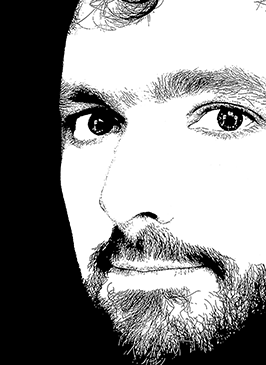Year of the Horse
In Raskol’nikov’s first dream
he goes to his little brother’s grave.
He crosses himself, kneels before it,
kisses it.
Holding his father’s hand
he passes by the kabák,
where they're all drunk, singing.
There, hitched to the heavy cart,
stands a gaunt nag, one score years
of age. They laugh at her, shout “Lash ’er!”
as Mikolka calls up one more lout
to her back.
“In the head! In the eyes!”—
they sing out, beat, whip her hard.
John Yossarian runs to her. He
won’t heed father, the elders.
John, he can only hold her.
Kissing her eyes, her muzzle, bloodied.
Unreal city! What’s left to him
but to wonder the Seven Hills
and watch the district’s iniquities,
its wanton frailties, its
lies and filth. As he stumbles
on Italian cobbles,
Alan Œdipuses / Lears
six steeds just because Dick can’t
make it with Jane (Judy? Joan?).
(God gives a lascivious moan.)
Robert Ross tries to open
the barn; Robert Ross tries to
keep them from harm; Robert Ross
can’t save the horses, and burns.
Evening sky creeps over town like plague
overripe. Caught in her freezing car,
the poet holds herself close, wipes off
her left eye, and then the right; then, types.




